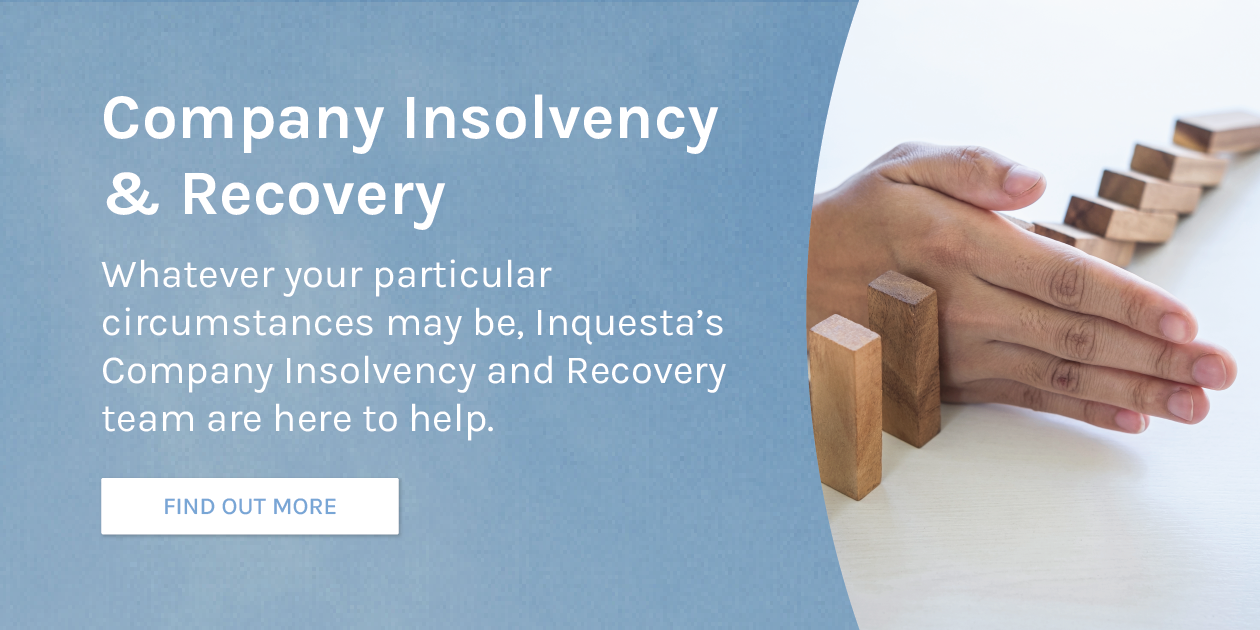The Definitive Guide to Insolvency Practitioner
The Definitive Guide to Insolvency Practitioner
Blog Article
Getting My Insolvency Practitioner To Work
Table of ContentsThe Buzz on Insolvency PractitionerInsolvency Practitioner - An OverviewInsolvency Practitioner for BeginnersGetting My Insolvency Practitioner To WorkThe Ultimate Guide To Insolvency Practitioner
Whether you need to make use of an insolvency specialist (IP) to liquidate your business depends on different aspects. While involving an insolvency practitioner for all types of liquidation is not a legal need, doing so can frequently streamline the process and ensure compliance with lawful needs. Liquidating a company is a vital choice that includes significant repercussions.
It is a treatment utilized when a company does not have any kind of creditors, or all of their creditors can be paid off completely with legal interest. Recognizing the different types of bankruptcy procedures can help you identify the finest strategy for your business's liquidation or other formal bankruptcy treatments itself.
This is compulsory in order to stick to lawful needs - Insolvency Practitioner. This is due to the fact that IPs have the necessary qualifications and experience to make sure that the liquidation procedure is carried out based on all relevant laws and policies. By involving a certified insolvency expert, you can have tranquility of mind recognizing that your company's liquidation procedure will be taken care of expertly and in compliance with the pertinent legal needs
The Greatest Guide To Insolvency Practitioner
The bankruptcy specialist is selected as a liquidator and is in charge of managing the firm and liquidator's financial debts superior liabilities and assets. This procedure entails selling off the business's possessions and dispersing the profits to financial institutions. Upon completion of the process, the firm is removed from the register at Firms House.
Falling short to do so can result in individual responsibility for the company or supervisor for the creditor's financial obligations. Volunteer liquidation, which consists of Lenders' Volunteer Liquidation (CVL) and Participants' Voluntary Liquidation (MVL), is initiated by the company's supervisors and shareholders when they can no longer pay their debts. In a CVL, the bankruptcy expert is designated as the liquidator, accountable for handling firm financial obligations and all business properties.

The Ultimate Guide To Insolvency Practitioner
By assessing the competence and experience of possible insolvency experts, you can make sure that you choose a practitioner that possesses the needed certifications to manage your firm's liquidation process properly. While insolvency practitioner-led liquidation is usually one of the most proper training course of activity for business encountering bankruptcy, there are different techniques to take into consideration, such as striking off and partial liquidation.
It's important to evaluate all available alternatives prior to choosing the following finest remedy or course of activity for your organization. Striking off companies' signs up is a much more straightforward and cost-effective way to close inactive or small firms without any financial debts or properties. To strike off a firm, its name is gotten rid of from the Business House register by sending type DS01.
Prior to deciding for striking off, it's important to weigh the advantages and downsides of this strategy and think about whether it's the appropriate option for your business. Partial liquidation is one more alternative to bankruptcy practitioner-led liquidation, where a firm sells off particular possessions and liabilities while proceeding to operate with the continuing to be properties and obligations.
An Insolvency Professional will certainly be able to recommend you of the very best strategy to take and ensure that whatever runs smoothly. It is not possible to sell off a business without a liquidator. Selecting an authorised insolvency specialist is essential for the process of volunteer liquidation to begin.
The Basic Principles Of Insolvency Practitioner
It is possible to close and liquidate your company without using a liquidator, provided your firm see this is solvent and you fulfill the qualification needs to liquify or liquidate it. Nevertheless, if your firm is bankrupt, you may be called for to use a liquidator and begin formal bankruptcy procedures. Here are a few other insightful articles pertaining to business liquidation in the UK:.
Remaining in a position where you're incapable to pay your firm's lenders is extremely difficult. In an effort to prevent enhancing the degree of debt, several companies attempt to discuss directly with their financial institutions and accept a casual setup. If the financial obligation is rather small and owed to one creditor, and the financial institution is being cooperative, getting in into an casual financial debt arrangement is probably the very best option, instead than looking the web for 'a bankruptcy practitioner near me'.
On the various other hand, if there are multiple lenders and the level of financial obligation is large, lenders may not be so prepared or cooperative. In order to prevent liquidation or personal bankruptcy, it is far better to hire a bankruptcy professional to formulate formal proposals and bargain with financial institutions on your behalf.
Not known Facts About Insolvency Practitioner
Whilst it is a means to take care of financial debt, there are substantial risks entailed with this kind of financial obligation arrangement - Insolvency Practitioner. If a lender agrees to become part of a casual plan (IA) wherein the debtor has actually accepted make normal, if lower, repayments to pay off the debt, it's essential to adhere to the contract

The lender is within their civil liberties to back out of the agreement and request the courts for your business to be sold off at any time. An official arrangement that has actually been proposed by a bankruptcy expert on your part, and concurred by a creditor, gives a much more next secure alternative.
Report this page